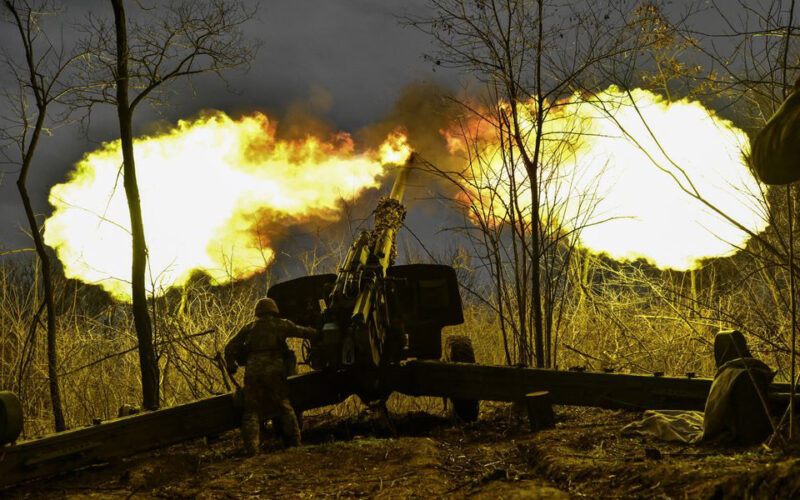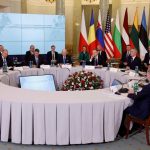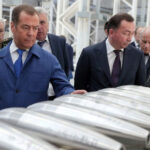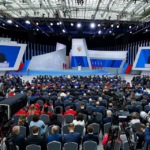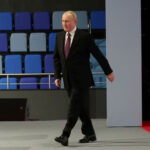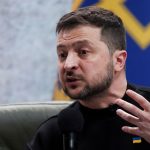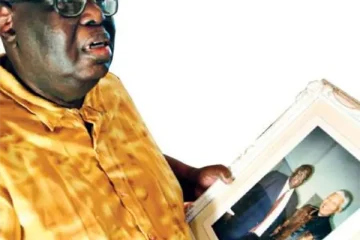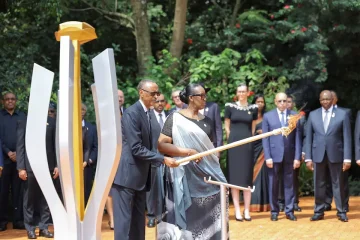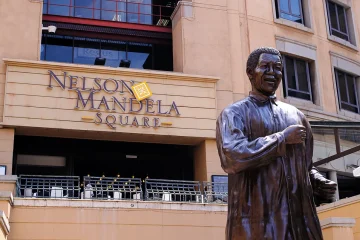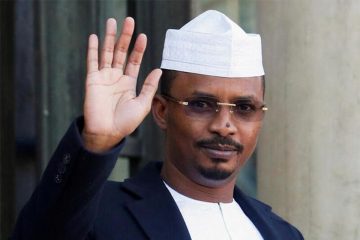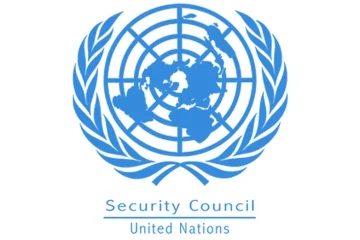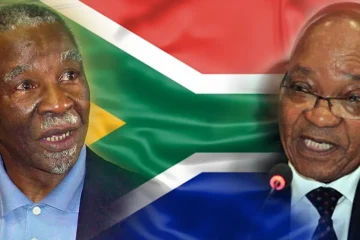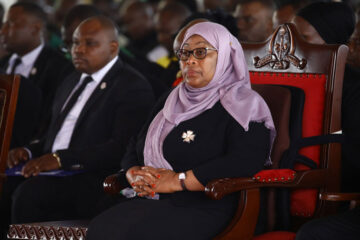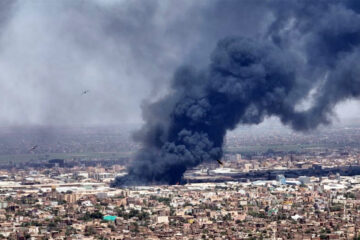WAR-MONGERING, threats and gung-ho diplomacy dominated a gathering of Western leaders in Germany over the past weekend during which war – instead of peace – was given yet another chance to prevail.
This year’s Munich Security Conference was, predictably, dominated by the war in Ukraine and how the West can continue to shore up Kyiv’s military to “acceptable NATO levels”.
The conference was a global spectacle attended by delegates from more than 100 countries.
Western heads of state, accompanied by diplomats and other officials, intelligence personnel and various strategic operatives intermingled with a single mission of revising and reviewing the effectiveness of their military support for Ukraine in its war to defeat Russia.
As the war marks its first anniversary since it broke out on February 24 last year, there was little or no talk about peace or negotiations to end the bloodbath that has claimed too many lives on all sides.
The West is all too happy to prop up Ukraine with weapons, a bottomless pit of finances and other material support. The end-game is simple, as NATO’s secretary-general Jens Stoltenberg explicitly acknowledged. NATO’s military support “risks triggering escalation”, he admitted, before throwing a bombshell, saying but “the biggest risk of all is if Putin wins”.
The conference was opened with the all-too-familiar appeal from the Ukrainian President Volodymyr Zelensky appealing to his anti-Russian backers for more “modern weapons”. The invariable answer to Zelensky’s appeal to the West is always, at least publicly, in the positive. It is part of a ferocious public relations exercise aimed at keeping the morale in Ukraine high and the public court of opinion in across the Western capitals squarely behind the “unconditional support for Ukraine”, as the US President Joe Biden has previously stated.
The new British Prime Minister, Rishi Sunak, who currently has his plate full with a head-ache menu that include Northern Ireland’s insistence on continued unhindered economic dealings with the EU in a post-Brexit era, coupled with unwavering campaign by the influential nationalists in Scotland for independence and a dwindling UK economy, grabbed the opportunity away from home soil to bask under the NATO’s sun in Munich.
Responding to Zelensky’s appeal, he took centre-stage, appealing to his fellow Western leaders to provide Ukraine with “advanced, NATO-standard capabilities”.
As if not to be outdone by any fellow war-mongers, Sunak declared that “now is the time to double-down” on military support for Ukraine, no matter the cost in “blood and treasure”.
The UK is Kyiv’s second-largest supplier of military aid after the US. Over the last year alone, London committed $2.77 billion to Ukraine’s military. Additionally, the UK trained a whopping 20 000 Ukrainian soldiers and pilots. Sunak recently announced that the UK would this year send to Ukraine a further 14 Challenger 2 main battle tanks along the UK’s entire stock of AS90 artillery guns. He also poked fun at the Russian President Vladimir Putin, saying “he is betting we will lose our nerve”. The UK “will prove him wrong”, he boasted.
What Sunak hid from the public is what his fellow alliance partners also hardly ever speak about publicly. And, that is, “the flow of weapons to Ukraine has left British stockpiles depleted”.
But then again, the Western leaders are not always on the same page when expressing their support for Ukraine. In fact, their standpoints sometimes collide, exposing the diplomatic fractures that NATO and Western allies work extremely hard to conceal.
For instance, speaking at the same conference in Munich, French President Emmanuel Macron categorically stated that his country does not seek “regime change” in Moscow. This, of course, is a sentiment not shared by many of his allies in their proxy war against Russia.
Said Macron: “When I hear a lot of people advocating for regime change, I would just ask them: For which change? Who’s next? We experienced several times in the past decade a lot of regime change in a lot of countries. It’s a total failure.” He also cautioned the West against attempting to force “humiliating” peace terms of Moscow.
The US has also previously hinted that it was not advocating for regime change in Russia. However, Moscow believes none of what the West say. After all, according to the Kremlin, the “Special Military Operation” in Ukraine would not have been necessary had NATO and the West addressed Russia’s publicly-stated concerns about NATO’s expansion eastward until to its door-step. Russia’s security concerns raised with the West since the end of the Cold War at the turn of 90’s consistently fell on deaf ears, and in fact Western leaders such as the US Secretary of State Antony Blinken dismissed the concerns as baseless and ludicrous.
A barrage of Western economic sanctions against Russia since the war began last February had thus far failed to bring Russia’s economy to its knees. Instead, the Russian Rubble had strengthened to levels higher than the period before the war.
There has been growing calls for the US-led NATO to lead Kyiv to the negotiating table with Moscow, particularly after President Putin and his veteran foreign affairs minister Sergey Lavrov had hinted at their preparedness to thrash out a negotiated settlement with the Kyiv and the West.
Former US Secretary of State Henry Kissinger is among prominent Western diplomats to call for negotiations in Ukraine.
What is also becoming clearer is that the West is using the Ukraine war to shore up their defence businesses through weapons manufacturing. The deliberate avoidance to enter the war physically with boots on the grounds is another example of the West’s sly push for their geopolitical objective to weaken Russia through a protracted war in which no body-bags are required for Western nations.
It is a fire the West is very glad to stoke. It doesn’t burn them. It burns the seemingly gullible Ukrainians whose infrastructure is being gradually decimated by constant Russian shelling.
It is a great pity that delegates from more than100 like-minded Western nations gathered for three days under one roof at the Munich conference without anyone calling for peace and negotiations to be given a chance by their wealthy states hell-bent on annihilating Russia, as Stoltenberg expressly puts it.
But be warned: Russia is yet to move up gears in its “special military operation. The highest gear is too ghastly to contemplate. Russia is still a superpower, at least in military terms. The West should not foolishly work to escalate the war. They must de-escalate their war-talk as a matter of extreme urgency.

